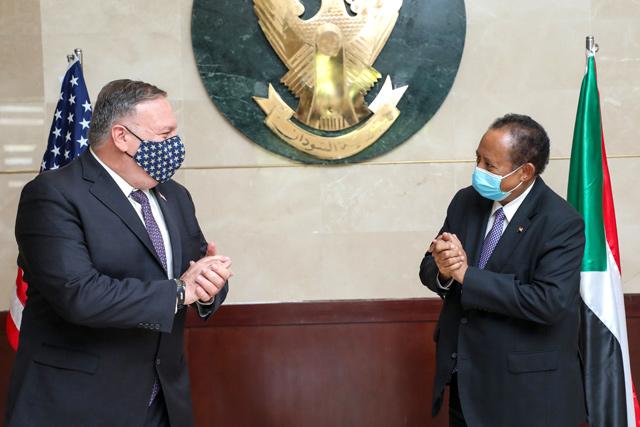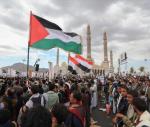You are here
Sudan: Torn apart by decades of war
By AFP - Aug 31,2020 - Last updated at Aug 31,2020
KHARTOUM — Sudan, where a landmark peace deal was signed Monday, aims to turn a corner on decades of conflict in one of Africa’s largest countries.
The partly desert nation sits between the Middle East and sub-Saharan Africa.
Military coups
Sudan gained independence in 1956 after a period of joint rule by Britain and Egypt.
It has a mainly Muslim population of 42.8 million, according to 2019 figures from the World Bank.
Arabic is the official language and Sharia law has been in force since 1983.
From June 1989 to April 2019, Sudan was led by Omar Al Bashir, a career soldier who swept to power in a military coup backed by Islamists.
Bashir was elected president in 2010 in the country’s first multi-party election since taking power and reelected in 2015. The opposition boycotted both votes.
Unrest broke out in 2013 after petrol prices skyrocketed and security forces killed dozens of protesters.
Demonstrations against food price hikes erupted in early 2018 and again in December after the cost of bread tripled.
The protests continued for nearly four months and dozens were killed in the violence before the army on April 11, 2019 removed Bashir from power.
On July 17, after three months of protests and dozens of deaths, military and protest leaders signed an accord on a three-year transition to civilian rule.
Bashir has since been convicted of graft and is now on trial over the 1989 coup that brought him to power.
South Sudan
breaks away
Sudan endured a first civil war from 1955 to 1972, while a second lasted from 1983 to 2005. Millions died in the conflicts.
In 2005, Khartoum signed a peace treaty with southern rebels, granting the south autonomy pending a referendum on independence in 2011.
South Sudan proclaimed its independence in July 2011, six months after voting by 99 per cent to secede.
The split removed roughly a quarter of Sudan’s territory. Before then it had been Africa’s largest country.
In early 2012, relations with South Sudan deteriorated, their armies clashing in oil-rich border zones.
Devastating Darfur
In 2003, rebels in Sudan’s vast arid western region of Darfur revolted against alleged political and economic marginalisation of black ethnic groups by the Arab-dominated regime in Khartoum.
Khartoum responded by unleashing the dreaded Janjaweed militia, blamed for atrocities including murder, rape, looting and burning villages.
The violence, which has significantly eased in recent years, resulted in one of the world’s worst humanitarian catastrophes.
The United Nations says about 300,000 people have been killed and more than 2.5 million displaced, many living in sprawling semi-permanent camps.
The International Criminal Court (ICC) in 2009 and 2010 issued arrest warrants for Bashir on charges of genocide, crimes against humanity and war crimes in Darfur — accusations he denies.
Battered economy, COVID-19
The 2011 secession of South Sudan hit the Sudanese economy badly as it lost around three-quarters of its oil reserves.
The country also suffered under a US economic embargo imposed in 1997 over its alleged backing of radical Islamist groups and the Darfur conflict.
The embargo was lifted in 2017 but Sudan remains on a US blacklist of alleged state terror sponsors, deterring investors.
In July, the international community promised $1.8 billion for Sudan, whose political transition is threatened by a serious economic crisis, worsened by the coronavirus pandemic.
The country, which has several illegal gold mines, is one of the world’s most impoverished, ranked 168 out of 189 on the UNDP’s Human Development Index in 2019 that compares life expectancy, education and per capita income.
Ancient treasures
Sudan’s ancient civilisations built more pyramids than the Egyptians, but they remain largely unexplored.
The archaeological site of the Island of Meroe, 220 kilometres north of Khartoum, is listed on UNESCO’s World Heritage sites.
It was the heartland of the Kingdom of Kush, a major power between the 8th century BC and 4th century AD, UNESCO says.
Related Articles
PARIS — Sudan, where fighting is raging between the army and paramilitary forces led by rival generals, has a history of civil strife and co
KHARTOUM — Washington once labelled Khartoum a hub of the “axis of evil”, but relations between the US and Sudan have warmed since hardline
KHARTOUM — The trial of Sudan’s ousted president Omar Al Bashir and others over a 1989 coup heard defence arguments on Tuesday dismissing ch
















